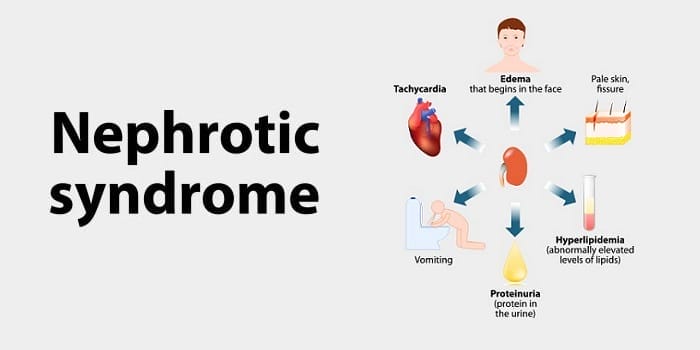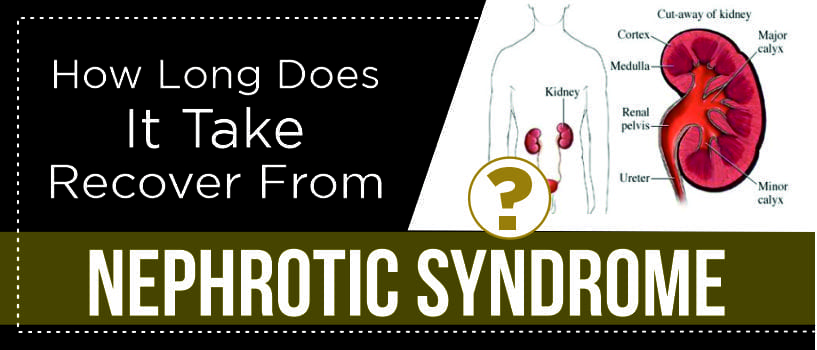Ayurvedic treatment for nephrotic syndrome has been used since ages and is providing relief to patients. Nephrotic syndrome is a general term for a condition where a large amount of proteins are lost in the urine. It can occur in any kidney disease where there is damage to the filtering units causing proteins to leak into your urine. It may lead to a drop in protein levels in your blood, leaving you at a greater risk of developing infections, illnesses, and fluid retention.
It is seen that some diseases causing nephrotic syndrome affect kidneys only, for example, nephritis. In comparison, other conditions causing nephrotic syndrome affect other parts of the body also, such as diabetes and lupus. This problem is associated with other issues, including swelling of body tissues and a higher rate of catching infections.
Who Is At Risk For Nephrotic Syndrome?
Nephrotic syndrome can affect anyone. However, males seem to experience it more frequently than females. It is also observed in kids between the ages of two and six. If you have a kidney illness like FSGS, lupus, or diabetes, or if you use certain medications like nonsteroidal anti-inflammatory drugs (NSAIDs) or antibiotics, you are more prone to develop nephrotic syndrome.
Nephrotic Syndrome Causes
Nephrotic syndrome is primarily brought on by illnesses that mainly affect the kidneys. Primary and secondary causes of nephrotic syndrome are separated.
“Minimal change disease” doesn’t have a known cause. It affects the majority of kids with nephrotic syndrome. It is indicated that when a tissue sample is examined under a microscope, the kidneys appear almost normal. However, if the tissue sample is examined under a very strong electron microscope, alterations can be noticed.

Nephrotic syndrome can sometimes result from a kidney issue or another condition, such as glomerulosclerosis, which is when the kidney’s interior becomes scarred; glomerulonephritis, which is kidney inflammation; an infection, like HIV or hepatitis; lupus; diabetes; sickle cell anaemia; and, in extremely rare circumstances, certain cancers, like leukaemia, multiple myeloma, or lymphoma.
A condition known as focal segmental glomerulosclerosis (FSGS) is the most typical cause of nephrotic syndrome in adults. A kidney biopsy is the only way to determine if you have FSGS. Even those receiving treatment for FSGS develop kidney failure and may require dialysis or a kidney transplant. Even after a transplant, there is a possibility that FSGS will come back, and you could lose your new kidney.
Diseases that also affect kidneys are secondary causes of nephrotic syndrome. Diabetes is the most typical secondary cause of nephrotic syndrome in adults and children.
What Are The Complications Of Nephrotic Syndrome? What Problems Can It Cause?
An essential protein called albumin that should be filtered by the kidneys instead escapes into the urine in people with nephrotic syndrome. Your body can expel excess fluids with the aid of albumin. Lack of albumin in the blood can lead to fluid retention, resulting in swelling in the legs, feet, and ankles. Other issues, including infections and blood clots, are also possible.
Additionally, blood cholesterol levels rise as a result of nephrotic syndrome. A heart attack or a stroke can occur with increased cholesterol in the circulation because clots form inside the veins and arteries.

A few other symptoms associated with nephrotic syndrome include:
Infections – Antibodies are specialised proteins present in the blood. These proteins help to fight infections. Children are much more likely to get infections frequently when the proteins are lost.
Urine changes – Occasionally, high levels of proteins are passed into the urine, making it frothy. It has also been observed in some children with a nephrotic syndrome that they may also pass less urine than usual during the relapses.
Blood clots – Some important proteins that prevent blood clotting are also passed out in the urine. It increases the risk of potentially serious blood clots. The blood also becomes more concentrated during relapse, which can lead to clotting.
Nephrotic Syndrome Symptoms
It isn’t easy to detect nephrotic syndrome until you have routine blood and urine tests. The results of tests can show too much protein in your urine and not enough protein in your blood. It might also indicate excess fat or cholesterol in your blood.

A few signs of nephrotic syndrome you may notice are:
- Oedema of legs, feet, ankles, and sometimes face and hands
- Weight gain
- Lethargy and weakness
- Foamy urine
- Loss of appetite
Nephrotic syndrome can also cause other health problems, such as:
- Decreased haemoglobin
- Cardiac disease
- High blood pressure
- Oedema
- Acute kidney injury
- End-stage renal disease (ESRD)
Nephrotic Syndrome And Your Diet
You may need to make several dietary changes to manage your disease. A moderate diet can help reduce the amount of protein lost in the urine and preserve your kidney function. High protein diets do not increase the levels of protein in your blood and, therefore, should be avoided. This includes avoiding high-protein drinks, powders, and supplements. It is also important that you do not avoid protein, as muscle wasting and malnutrition may occur.

Nephrotic syndrome ayurvedic treatment has always been helpful. Ayurveda is always helpful in treating kidney disorders. These medicines aim to purify the body, heal symptoms, and then boost resistance to illness. It works towards providing a more peaceful and less stressful life. For this purpose, it uses plants, herbs, life-style changes etc.
Ayurveda assesses the symptoms in terms of Dosha, Dushya, and Adhisthana of the disease and the capabilities of the patient. After thorough identification, appropriate therapeutic interventions are planned. The contemporary treatment system is costly. Therefore we need affordable medical care with no side effects. Our ancient system of kidney treatment in ayurveda provides sustainable remedial measures. There are various herbs and medicines available in Ayurvedic treatment for nephrotic syndrome to treat kidney related disorders like Varun, Punarnava, Gokshura etc.
Ayurveda also prescribes disease-specific diet i.e. known as Ahaar and also suggests lifestyle changes, known as Vihaar. These are always recommended by Ayurvedic experts to combat kidney disease.
It is always advised to consult an ayurvedic practitioner before consuming any herbs for treatment.

